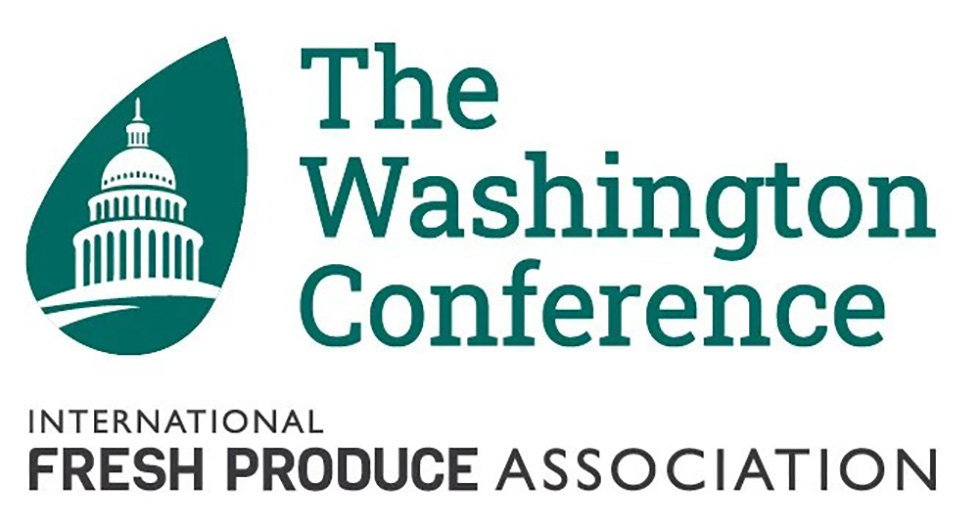As policymakers and industry leaders prepare to gather June 9-11 for The Washington Conference in Washington D.C., the International Fresh Produce Association (IFPA) is setting the stage for critical policy discussions impacting the fresh produce and floral industries.
With a focus on labor, food safety, nutrition, trade and the Farm Bill, IFPA leads advocacy efforts to strengthen the supply chain and ensure consumers have access to safe, affordable and high-quality fresh produce and floral products.
“As the fresh produce industry faces evolving challenges, from trade barriers to food safety regulations and nutrition policy, IFPA is committed to being the leading voice advocating for fair, effective and science-based solutions,” said Rebeckah Adcock, IFPA’s VP of government relations.
“By working with policymakers, we can ensure that fresh produce remains a critical component of public health and economic prosperity. The Washington Conference provides a unique opportunity to directly engage with policymakers shaping the future of agriculture. Growers, retailers, distributors and industry advocates will use their collective voice to secure policies that support a resilient fresh produce and floral supply chain.”
Workforce and labor
A stable workforce is essential to the fresh produce supply chain. IFPA is leading efforts to reform agricultural labor policies to ensure growers have access to the workforce they need while maintaining fair and reasonable labor standards.
Key priorities include H-2A visa improvements, expanded H-2B visas for year-round workers and the creation of an agricultural industry liaison within the Department of Labor to ensure fair, practical labor policies that support growers and workers.
Nutrition and public health
With diet-related diseases on the rise and the U.S. Center for Disease and Control reporting that only one in 10 Americans meet daily produce consumption recommendations, IFPA is pushing for stronger federal nutrition policies.
Efforts include protecting funding for the Women, Infants and Children (WIC) Program, expanding the fresh fruit and vegetable program, and supporting produce prescription programs that integrate fresh produce into Medicare, Medicaid and Veterans Affairs healthcare initiatives.
Modernizing the Farm Bill
As Congress works toward reauthorizing the Farm Bill, IFPA is advocating for policies that reflect the fresh produce industry’s critical role in the economy and public health, including increased funding for precision agriculture and automation, improved crop insurance for specialty growers and expanded USDA procurement programs to ensure fresh produce reaches food banks and nutrition initiatives.
Trade and supply chain resilience
As global trade policies shift, IFPA is committed to ensuring fair trade practices that protect U.S. growers and consumers. IFPA is fighting for science-based trade policies, the removal of non-tariff barriers and prioritization of fresh produce in port operations during supply chain disruptions to prevent losses and maintain market stability.
Food Safety: A Science-Based Approach
IFPA is calling for a more prevention-based, risk-focused approach to food safety that balances consumer protection with industry realities. IFPA is advocating for increased transparency and efficiency within the FDA’s Human Foods Program and more robust funding for state-level food safety inspections under the Food Safety Modernization Act (FSMA).
As policymakers shape the future of agriculture, IFPA stands as a leading voice for the fresh produce industry. By advocating for a strong workforce, modernized agricultural policies, enhanced nutrition programs and a fair-trade environment, IFPA is committed to protecting the industry’s long-term success and ensuring that fresh produce remains accessible to all consumers.
[RELATED: FDA Extends Date For FSMA 204 Compliance]

